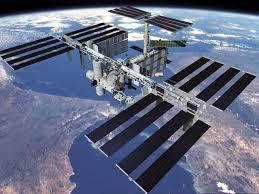%%bloglink%%

What made these stories even more fascinating was his ability to reframe the lessons and experiences he had in space and make them relatable to our everyday environment (work, money, family, dedication, etc.)
Here are four lessons that relate to investing that I took away:
Know how everything is supposed to work before you take off.
- One of the craziest stories he told was when a machine in one of the Space Station capsules started billowing smoke. He joked that smelling smoke at a BBQ was good but smelling smoke when you are 200+ miles above the Earth was very, very bad.
- If he and fellow astronauts weren’t already trained on how each of the machines worked and what to do if things went wrong BEFORE they took off, then there’s no telling how bad it could have gotten.
- You may not care what makes each of the stocks/mutual/index funds you own tick but you should be able to easily tell if the investments you own are doing what they were supposed to do.
- You should also have a plan as to what to do if things don’t go your way.
You may feel nauseous
- Upon entering the weightlessness of space, nearly all astronauts experience some form of space motion sickness, which is similar to car or sea sickness. The reason for this discomfort is in space, the sight, hearing, and touch signals do not match as they do on Earth (mostly because there is no “up” or “down” to relate to, you cannot feel the floor on your feet, and you cannot sit down to feel the chair beneath you), and this sudden input of confusing signals to the brain causes many astronauts to feel sick.
- Similarly, if you have only known investment during one type of environment such as low interest rates, easy access to credit, etc., you may become nauseous if those input signals are turned upside down.
Save your energy.
- In space your heart doesn’t have to work as hard since it takes less energy to float around a spacecraft than to move around on Earth. Because it no longer has to work as hard, the heart actually starts to shrink. Don’t worry, this reduction of heart size doesn’t seem to impact the astronauts while they are in space but it does make them feel as if they were out of shape when they initially return to Earth.
- As this relates to investing, if you can already reasonably expect to generate $X per month from your investments and this is more than enough to provide you a comfortable lifestyle, why add all the extra risk, stress and heartache in order to try and earn returns of $X + Y?
Get rid of the unnecessary.
- When an astronaut experiences weightlessness for more than a week, their bones actually start to lose calcium and become weaker. Muscles also become weaker and partially waste away. The reason for this is without gravity, the body doesn’t need as strong of a musculoskeletal system, so it gets rid of the unnecessary.
- I’m always suspicious when I see a brokerage statement with dozens of positions. Do you really need six large cap growth funds are is your advisor making your account seem more complex than it has to be so they can justify their fees? It’s also easier to hide a broken toy (poor performing fund) in a toy box (account full of funds) than if it was in the middle of the floor.
